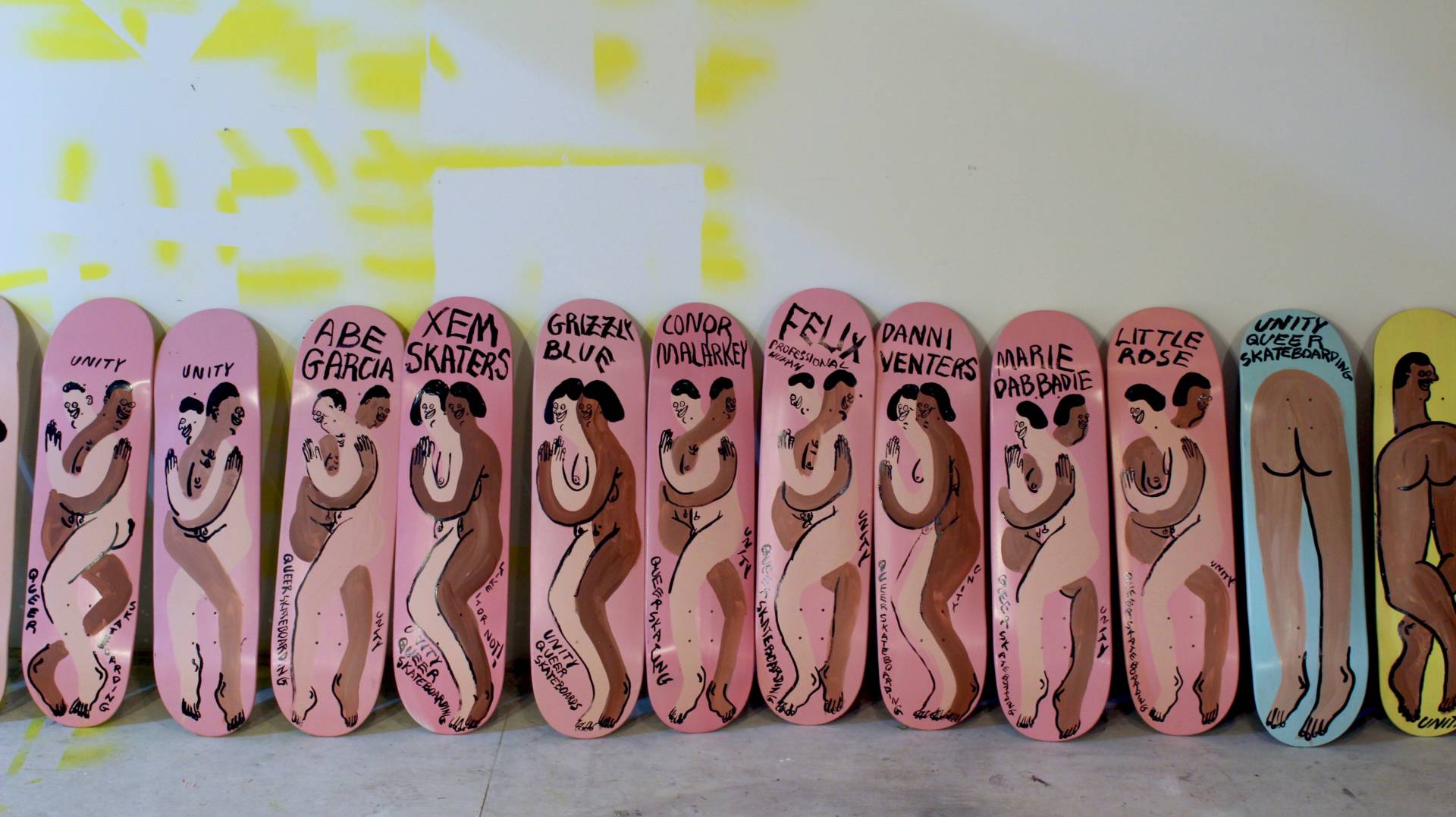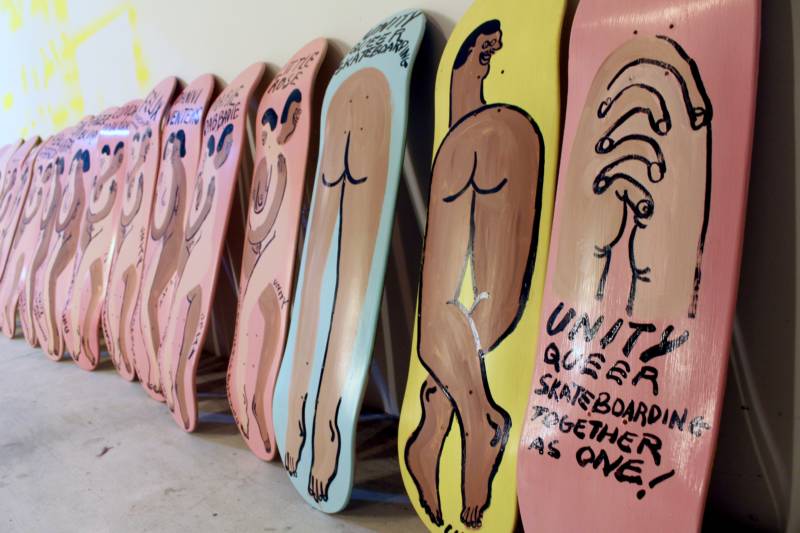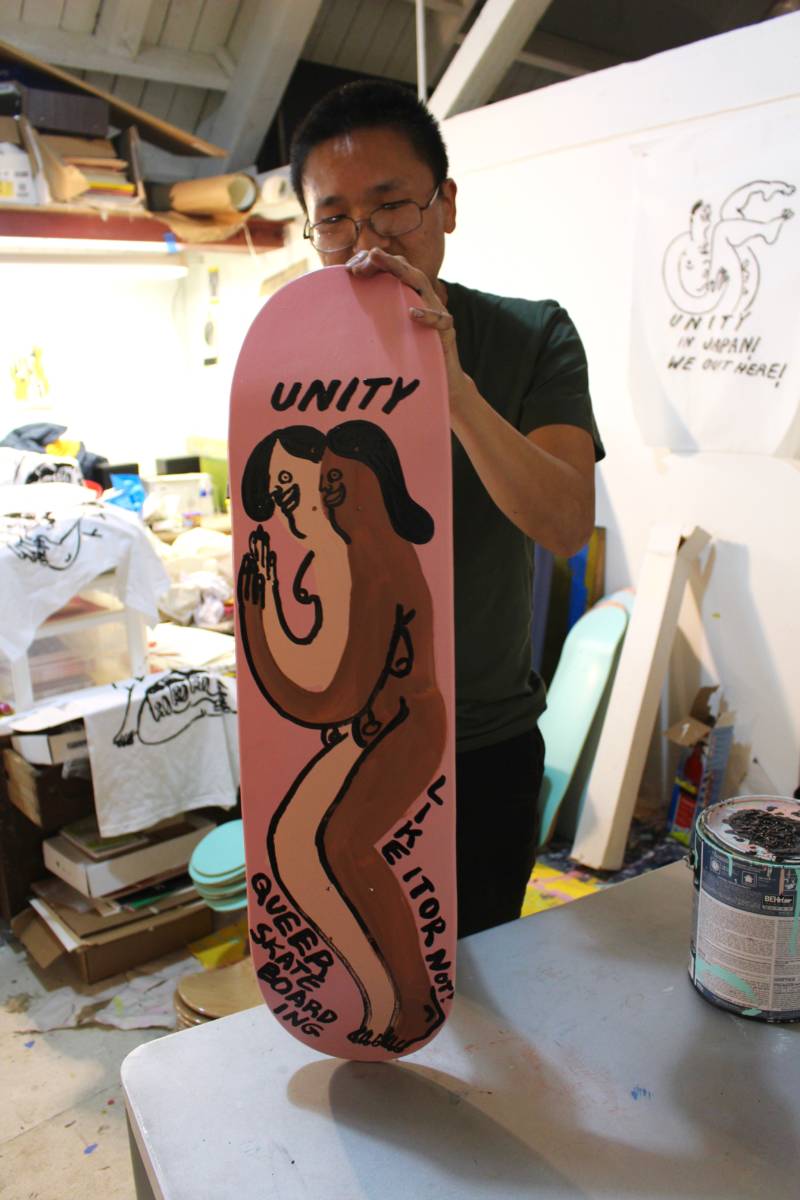It’s late on a recent Friday night at Jeffrey Cheung’s studio in an old West Oakland yogurt factory, where the popular painter is putting the finishing touches on a hand-painted skateboard deck. Upon a pink background, two nude figures joyously intertwine their bodies, each with long black hair, breasts hanging freely, and plump lips curving wide across the face. Although skate deck art varies widely these days, Cheung’s boards still stand out for their brilliantly unabashed branding: “Unity Queer Skateboarding,” this one reads, “Like it or Not!”
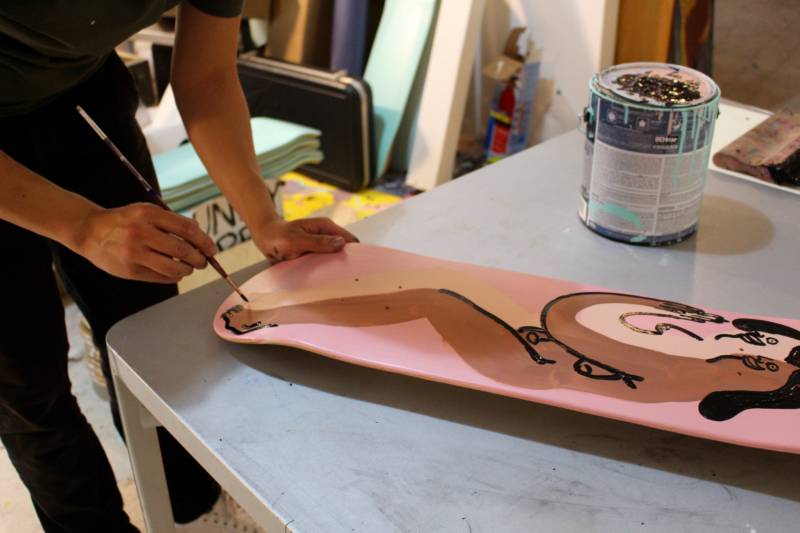
Cheung is best known for his prolific output of paintings, screen prints, and illustrations often featuring groupings of same-sex or gender-ambiguous figures adoring each other’s — or their own — bodies in utter glee. His paintings manage to feel both queer- and body-positive without appearing polemic. Rather, they affirm in an infectiously matter-of-fact manner that cuts through both the disheartening political climate and the sometimes overwrought realm of identity politics.
That could be said for everything that falls under the Unity moniker — a creative umbrella encompassing several projects produced by Cheung and his core group of friends, all branded with Cheung’s signature illustrations. There’s Unity, the band in which Cheung sings and plays guitar; Unity Press, which publishes zines and sells screen-printed clothing; and now Unity Skateboarding, a company specifically meant to nurture a sense of pride and community for queer skaters in a sport with little queer visibility.
The Unity Skateboarding launch in early February also coincided with the soft opening of Unity Mart, the crew’s new shop in West Oakland. At the event, nearly all of Cheung’s first run of 100 hand-painted decks found new homes.
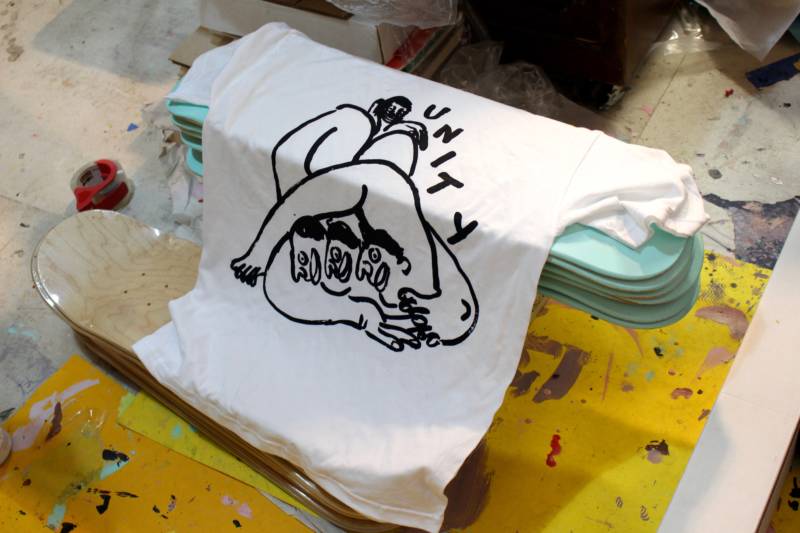
Cheung, who is in his late twenties, started skating when he was 11 years old. During high school, art helped him come to terms with his body and sexuality, while skateboarding served a more escapist role. “I didn’t really think about too much else when I was skateboarding, and that was liberating,” he says.
